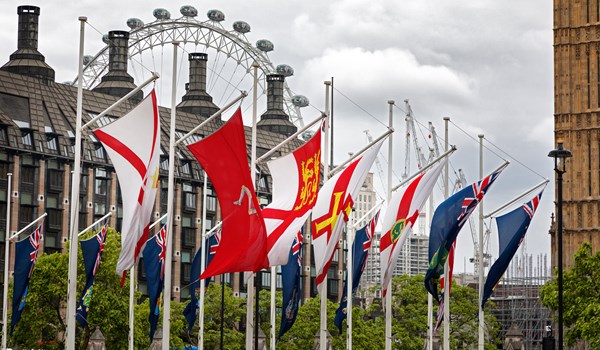The Bailiwick of Jersey is a British Crown dependency, which means that it is not part of the UK but is rather a self-governing possession of the British Crown. However, the UK Government is constitutionally responsible for its defence and international representation.
There are three island territories within the British Isles that are known as Crown Dependencies; these are the Bailiwicks of Jersey and Guernsey which make up Channel Islands, and the Isle of Man. The Crown Dependencies are not part of the United Kingdom, but are self-governing possessions of the British Crown.
How did Jersey become self-governing?
In 1204 King John lost the Battle of Rouen against the French King Philippe-Auguste. The defeat signalled the loss of continental Normandy, united with the English Crown since the invasion of England by William the Conqueror in 1066. The Channel Islands, part of the Duchy of Normandy for more than a hundred years at that point, might have been expected to align themselves with the French King in 1204 but they were persuaded by a combination of carrot and stick to side with King John instead.
Among the privileges which the King granted Islanders was the right to be governed by their own laws and he instructed them to select their 12 best men as Jurats who, sitting with the Bailiff, became the Island’s Royal Court. A warden, later to become governor, was appointed by the King to organise the defence of the Island.

Jersey’s Constitution
The constitutional position which Jersey enjoys today is founded on these links with the English Crown confirmed in Royal Charters by subsequent monarchs. Over a period of time, the Royal Court began to consult with the people through the Constables (or Connétables) of the parishes and with the church through the rectors. This consultation with the 3 estates of court, people and church was eventually formalised into what we now know as the States of Jersey. Significant constitutional changes in 1856 and 1948 saw the introduction of Deputies and Senators into the States and the removal of the Jurats and the rectors. However, the 12 Jurats remain the lay members of the Royal Court and are today chosen by an electoral college comprising members of the court and the States.

The Crown Dependencies have never been colonies of the UK. Nor are they Overseas Territories, like Gibraltar, which have a different relationship with the UK. The constitutional relationship of the Islands with the UK is maintained through the Crown and is not enshrined in a formal constitutional document.
The difference between crown dependencies and overseas territories is that, British Crown Dependency means that you are self-governing but the British Crown maintains its possession of you. On the other hand, British Overseas Territory means that you are a British colony that continues to have a constitutional link with the United Kingdom.

